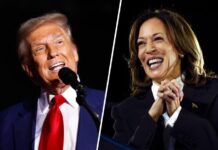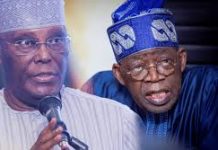The Economic and Financial Crimes Commission (EFCC) has issued a strong warning to foreign missions operating in Nigeria, prohibiting them from conducting transactions in foreign currencies and requiring them to use the Naira for their financial activities.
Furthermore, the EFCC has instructed Nigerian foreign missions located abroad to accept the Naira for their financial operations.
The EFCC said this decision becomes necessary to combat the dollarization of the Nigerian economy and the devaluation of the Naira.
In an advisory titled “EFCC Advisory to Foreign Missions against Invoicing in US Dollar,” sent to the Minister of Foreign Affairs, Ambassador Yusuf Tuggar, the anti-graft commission expressed its concerns and dissatisfaction with the practice of some foreign missions invoicing consular services to Nigerians and other foreign nationals in the country using the United States dollar.
In a letter dated April 5, 2024, addressed to the Minister of Foreign Affairs, the Chairman of the EFCC, Ola Olukoyede, expressed disappointment regarding the invoicing of consular services in Nigeria in dollars by foreign missions.
The EFCC referred to Section 20(1) of the Central Bank of Nigeria Act, 2007, which designates the currencies issued by the central bank as the only legal tender in Nigeria.
The letter read, “I present to you the compliments of the Economic and Financial Crimes Commission, and wish to notify you about the commission’s observation, with dismay, regarding the unhealthy practice by some foreign missions to invoice consular services to Nigerians and other foreign nationals in the country in United States dollar ($).
“This practice is an aberration and unlawful as it conflicts with extant laws and financial regulations in Nigeria. Section 20(1) of the Central Bank of Nigeria Act, 2007 makes currencies issued by the apex bank the only legal tender in Nigeria.
“It states that ‘the currency notes issued by the Bank shall be the legal tender in Nigeria on their face value for the payment of any amount’.
“This presupposes that any transaction in currencies other than the naira anywhere in Nigeria contravenes the law and is, therefore, illegal.
“In light of the above, you may wish to convey the commission’s displeasure to all missions in Nigeria and restate Nigeria’s desire for their operations not to conflict with extant laws and regulations in the country.”












































